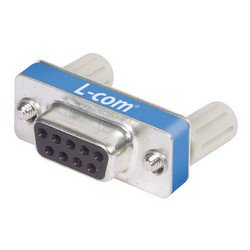

I was therefore very pleased recently to find an impressive piece of freeware specifically designed to test your soundcard's performance, which requires very little technical know-how to operate. It also benefits from some specialised knowledge to select the most suitable settings from a wealth of options, and to interpret the results.
DIGITAL AUDIO LOOPBACK CABLE SOFTWARE
Others perform simple tasks such as channel identification and record and playback checks.Ĭommercial loopback test software like HpW Works ( and SpectraLab ( is excellent for the professional, but tends to be expensive if you'll only use it to perform occasional tests on your soundcard, especially if you want the versions that support 24-bit/96kHz.
DIGITAL AUDIO LOOPBACK CABLE PC
Audio Precision's freeware PC LevelCheck utility is one such, and I discussed others in SOS September 2000 as part of my 'Test Card' feature. I've tried quite a few software audio test utilities over the years, most of which mimic individual pieces of test gear. However, you can still get useful results by using your own soundcard to play some suitable test signals, looping its output sockets back to the inputs using a short high-quality loopback cable, and then using suitable software to analyse the results.

Hardware such as theirs should ideally be an order of magnitude (10:1) better in audio performance than the soundcard it's testing, which explains the cost of such systems. Their site also provides a wealth of useful information on audio quality and testing. Among the most popular manufacturers of such test equipment are Audio Precision ( whose systems seem to be used by the majority of soundcard manufacturers. However, as you might expect, the advent of personal computers has resulted in quite a few automated systems, still using dedicated hardware as a front end, but with software to analyse the results, and a computer monitor to display them. Traditionally, all audio equipment has been tested with a combination of external hardware: signal generators to produce suitable test signals, and oscilloscopes to examine the result. They may also be improved by looking more closely at the earthing of your PC. After all, your recordings may be compromised by unsuitable settings in the soundcard's mixer utility, or by using the wrong type or wiring of cables. However, as I said at the time, there's a lot more to soundcard quality than this, so this month, I thought I'd detail some ways for you to test more aspects of your soundcard, to make sure you're getting the best performance from it. As a result, I wrote a reply in August's Q&A explaining how I normally measure the RMS background noise that I quote in my reviews.

Over the last couple of months I've noticed increased interest by SOS readers and forum users in checking the audio quality of their soundcards. Rightmark's Audio Analyser provides a simple way to assess various aspects of the audio performance of your PC soundcard and compare it to others, and best of all, it's freeware.Īn hour spent fine-tuning the performance of your soundcard can yield permanent improvements in background noise, distortion levels and frequency response.


 0 kommentar(er)
0 kommentar(er)
